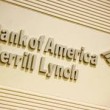“Investors are not yet ‘max bearish.' They have yet to accept that we are already well into a normal, cyclical recession/bear market,” says BofA Merrill Lynch's Michael Hartnett.
BofA Merrill: Investors regained risk appetite in October
With growth and inflation expectations notably higher after new US payroll data, investors have cut cash holdings and increased exposure to equities, real estate and alternative investments. Confidence in the global economy also rebounded, up 22 percentage points from October.
BofA Merrill: Managers increasingly doubtful of 2015 rate hike
“As investors debate the timing of a rate hike, they should be anticipating a massive policy shift in the US, Europe and Japan from QE to fiscal stimulus in 2016,” said Michael Hartnett.
BofA Merrill manager survey finds deterioration in global outlook
"Contrarians will be noting the aggressive underweight positioning in emerging markets,” said Michael Hartnett, chief investment strategist at BofA Merrill Lynch Global Research.
BofA Merrill survey: Investors hoard cash as confidence in China wanes
“Rising risk aversion and stretched cash levels provide a contrarian buy signal for risk assets in Q3,” said Michael Hartnett, chief investment strategist at BofA Merrill Lynch Global Research.
BofA Merrill Lynch survey finds concerns of overvaluation in both equity and bond markets
The proportion of global investors saying equity markets are overvalued has reached its highest level since 2000. A net 25 percent of respondents to the global survey say that global equities are currently overvalued, up from a net 23% in March and a net 8% in February. This is still, however, short of the record-high level of a net 42% in 1999.
No surprise: Global allocators shift to a “risk-off” position amid geopolitical uncertainty
The survey found that sentiment towards global emerging markets is close to reaching a low and that improvement is in sight. The proportion of global asset allocators underweighting emerging-market equities has risen two percentage points month-on-month to a net 31% – a new record low.



